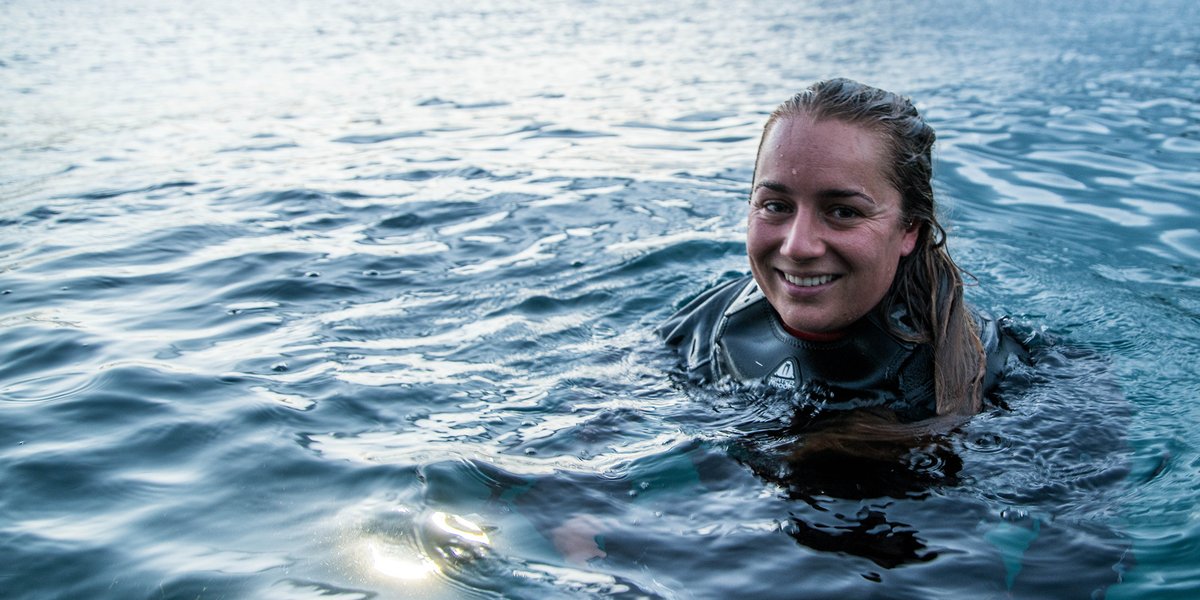Virginia Andrews-Goff
"I would literally spend my days up to my knees, amongst the dolphins and snorkelling over the reefs. For the rest of my life I would spend the majority of my summers below the water or floating above the water, surfing."
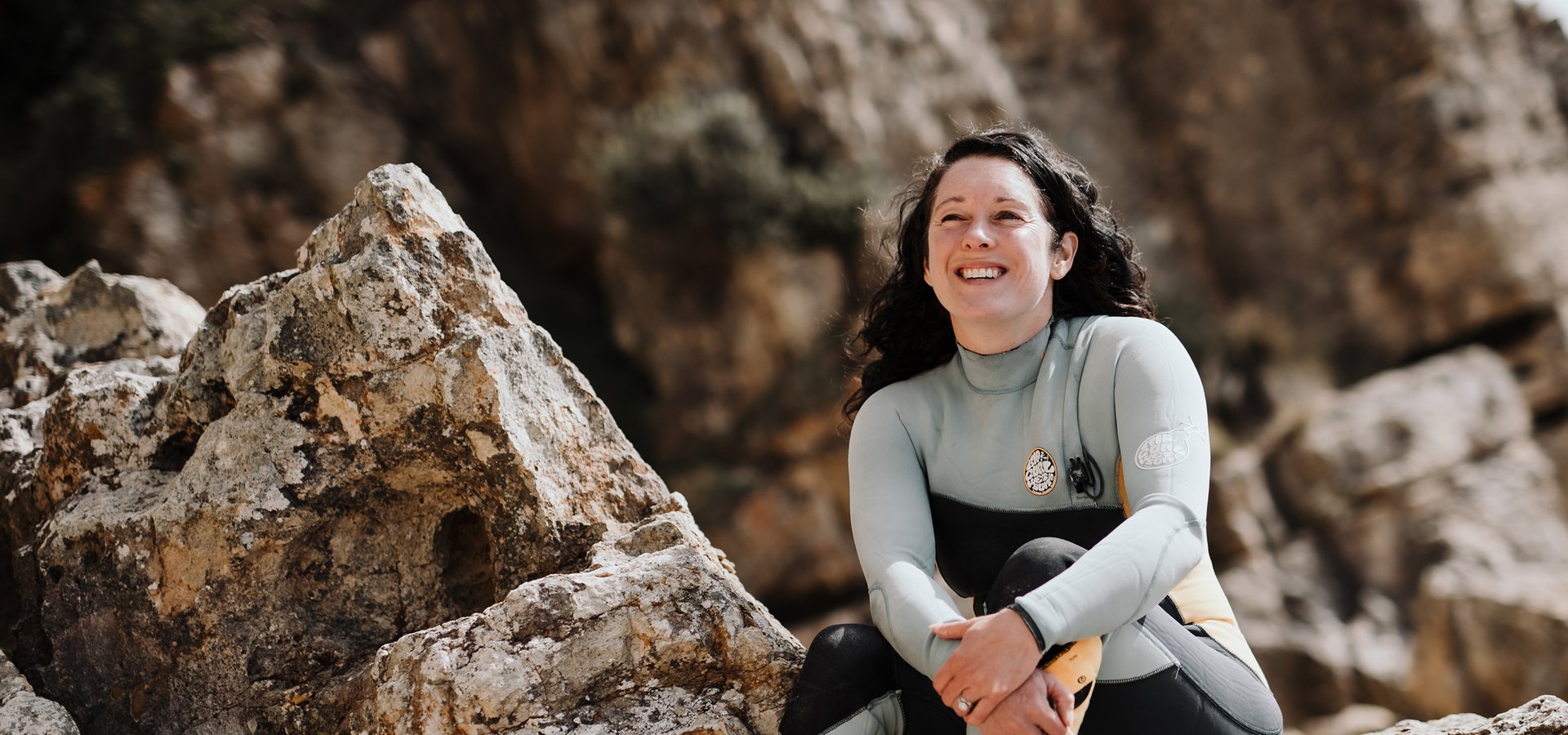
“The first time I saw the ice edge, I was standing right at the top of the Aurora Australis by myself. My brain was literally so overwhelmed by what I saw that, hilariously, I burst into tears."
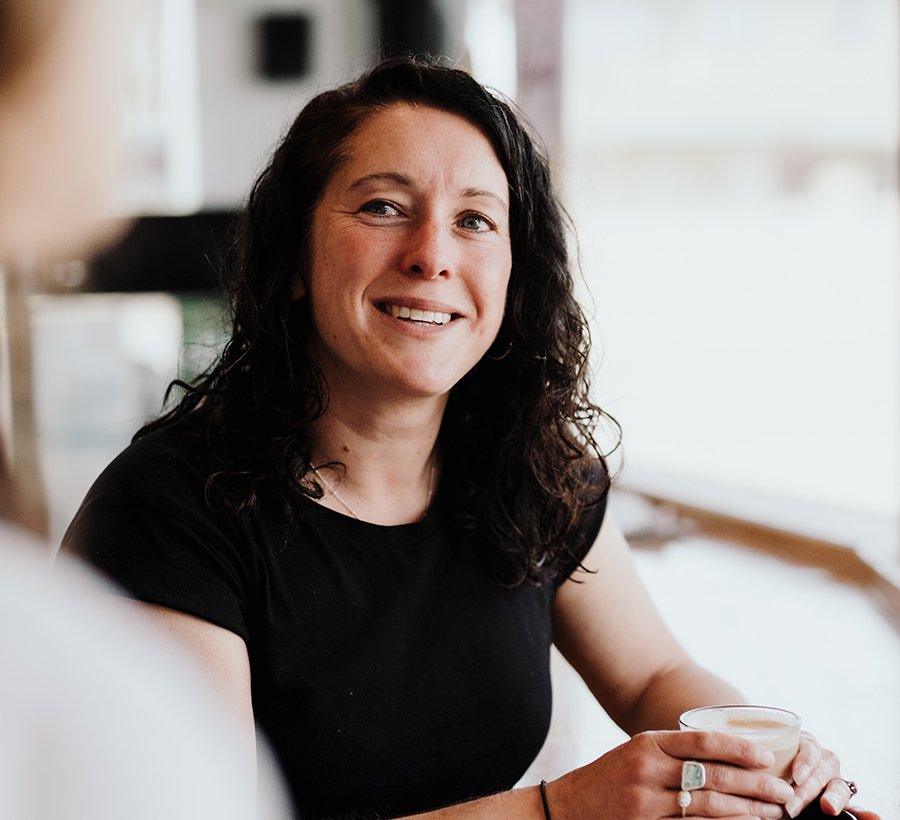
Virginia Andrews-Goff has a long commute, by Tasmanian standards. She lives a two-minute walk from Clifton Beach, one of the finest places in Tasmania to surf. On her drive home, at the point where the bay opens up before her, Virginia transforms.
“I go into an immediate relaxed state,” she says. “You can’t escape nature.”
Even at work, she doesn’t escape nature. Virginia studies marine mammals at the Australian Antarctic Division in Hobart.
“Antarctica is a magical place,” she says, “it's like nothing else. And I very rarely know how to put it in words. I think the point is—you can't. The first time I saw the ice edge, for example, I was standing right at the top of the Aurora Australis by myself, looking at this line of white creeping up on me. My brain was literally so overwhelmed by what I saw that, hilariously, I burst into tears. There was just a moment of not being able to comprehend the magnitude and beauty of what I was seeing, and the thought of putting that into words… I just don't know how to do it.”
How did Virginia end up in Tasmania, luxuriating in nature after spending every day studying the natural world? She reckons it all goes back to when she was ten. From their hometown of Sydney, she and her family travelled across Australia.
“I got sucked in with the charismatic megafauna at Monkey Mia,” she says, “on the coastline of Western Australia. I would literally spend my days up to my knees, amongst the dolphins and snorkelling over the reefs. For the rest of my life I would spend the majority of my summers below the water or floating above the water, surfing. It was such a big part of my life that becoming a marine biologist was the obvious step.”
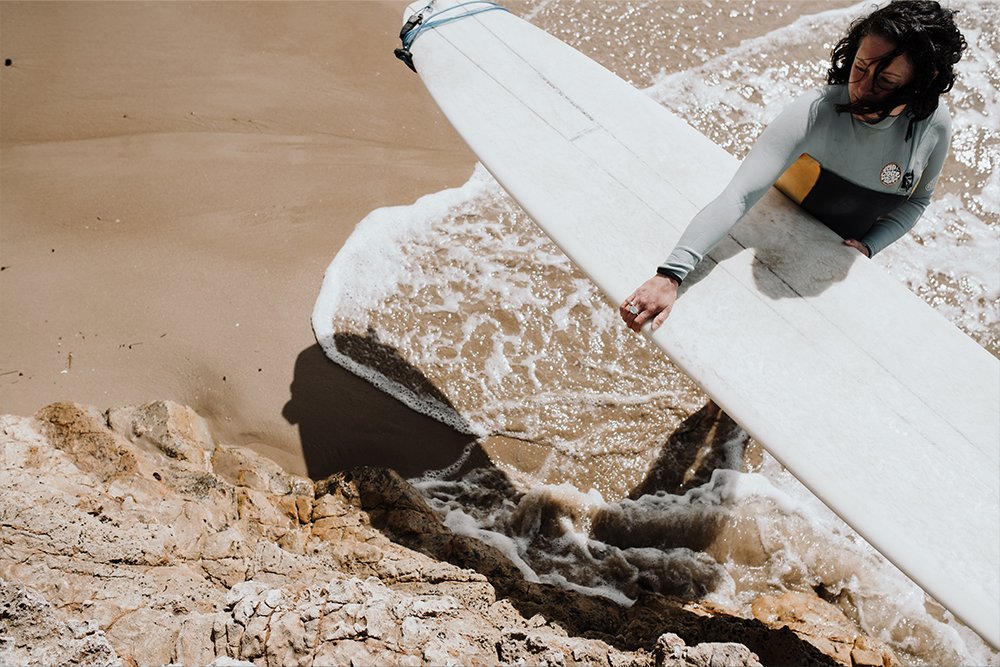
While Virginia does not consider it easy to have arrived in a career she has been imagining since she was ten years old, there is something about the work itself that taught her not to be discouraged by obstacles.
“When you're heading down a path like this, obstacles just redirect you somewhere else,” she says. “You become quite resourceful when you're working in the field a lot. When you head through undergrad, and then honours and then PhD, enough things get thrown at you—like, you know, losing your entire thesis. Or bad field seasons, the animals don’t turn up or your equipment fails. Moments like that just funnel you into a new way of being resourceful.
"I dropped my expectations of what a science career might look like for me, because I realised that I would be fulfilled and excited by any science opportunities presented to me in Tasmania. Tassie offers so many different science options though, that in the end, I got the one I wanted anyhow.”
Virginia tracks marine mammals, and she feels it’s an unusually good time to do it from Tasmania. “We’re looking at conservation and management of whales in particular. And I guess my focus now is heading toward novel methods to undertake our research. Satellite tagging is obviously a huge part of my work, but I'm actually looking at non-traditional options for deploying satellite tags to take advantage of our new icebreaker, RSV Nuyina, and seeing how she will operate. It will change the way we can do things in the Southern Ocean. Using her as a platform to launch a drone, for example, to undertake some of the work that we need to do—like deploying biopsy darts and satellite tags. My work has taken on this angle of innovation for conservation and management.”
Virginia is deeply attached to marine environments, so attached that when she and her family go on holiday they tend to find new places to go surfing… even though she lives on a surf beach. There is one exception.
“Every year we go to Cradle Mountain in the depths of winter,” she says. “I wonder if it’s my connection to Antarctica but it's this place where I can feel cold, and in the wild and isolated, and there's something rejuvenating about that experience. It helps you just get back in touch with life in its simplest form.”
Virginia Andrews-Goff is one of five Antarctican-Tasmanians featured in partnership with our friends at Antarctic Tasmania.

We worked with southern Tasmanian photographer Jon Gazzignato for this Tasmanian story.
Read about more Tasmanians
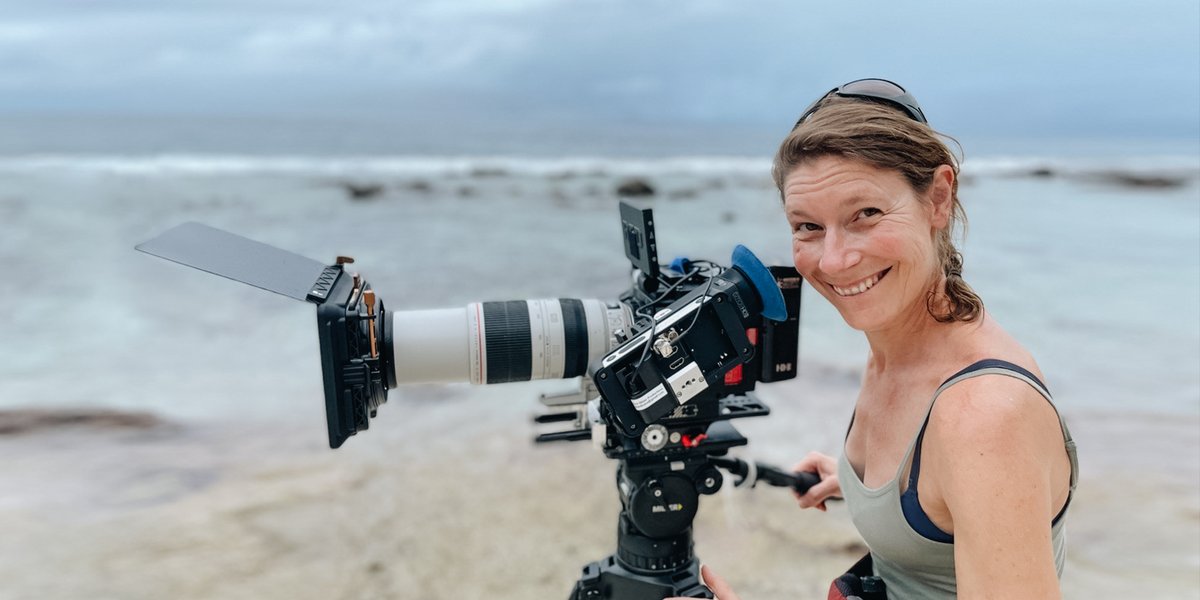
Frederique Olivier
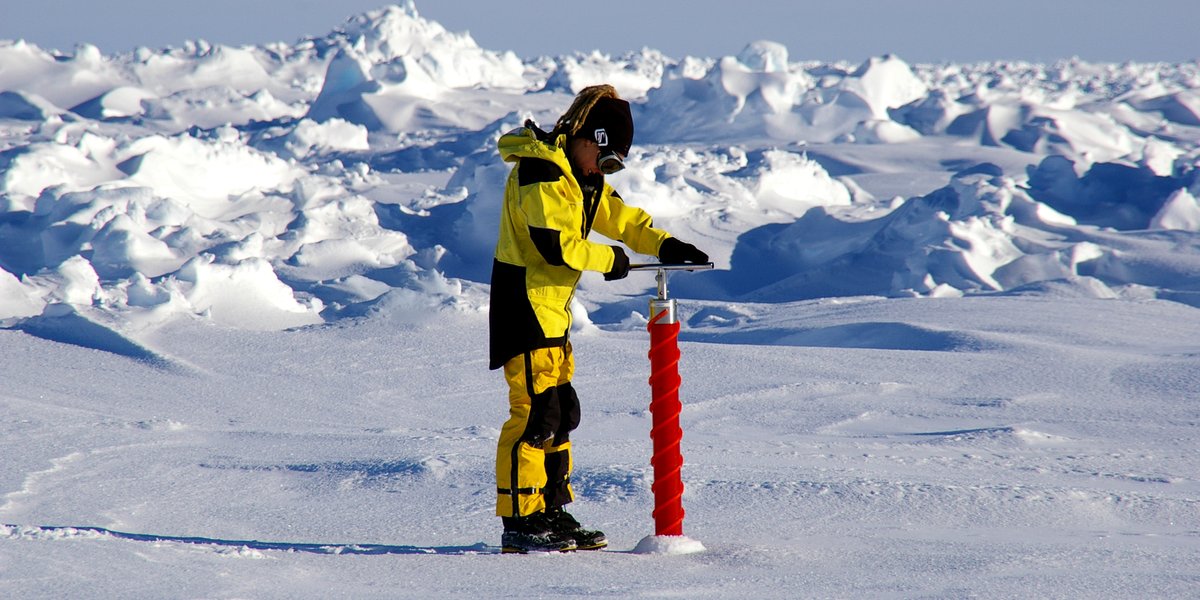
Jess Melbourne-Thomas
